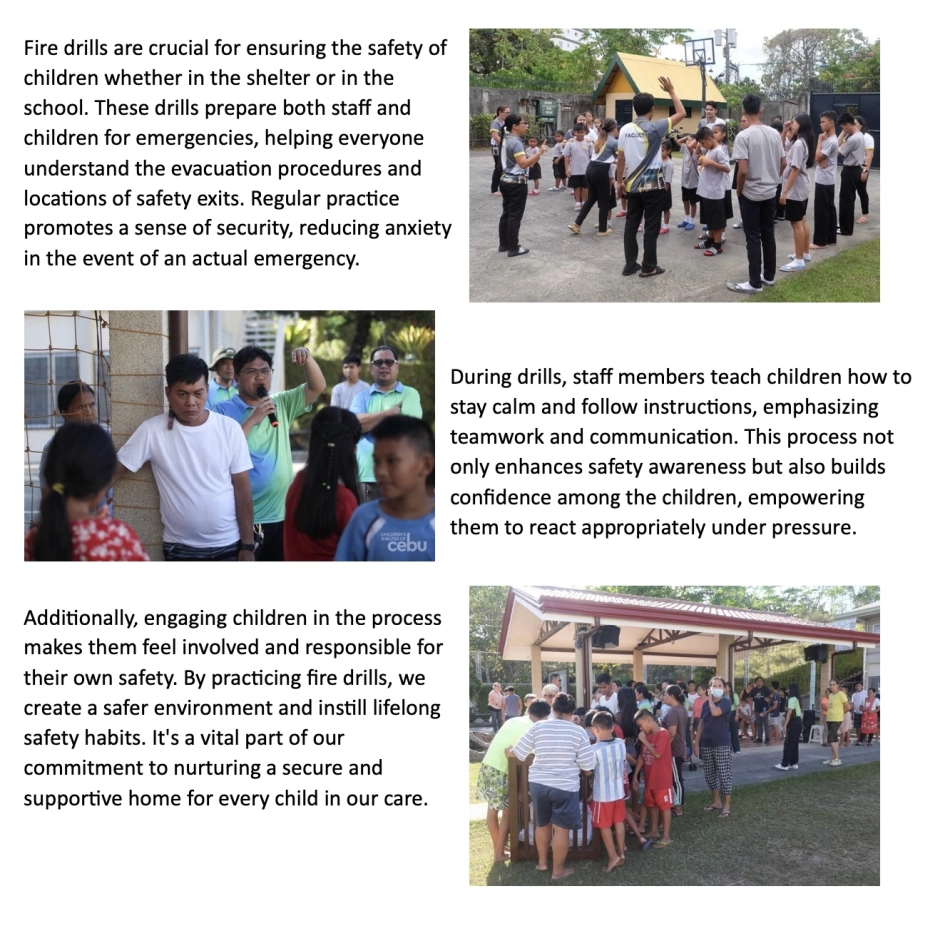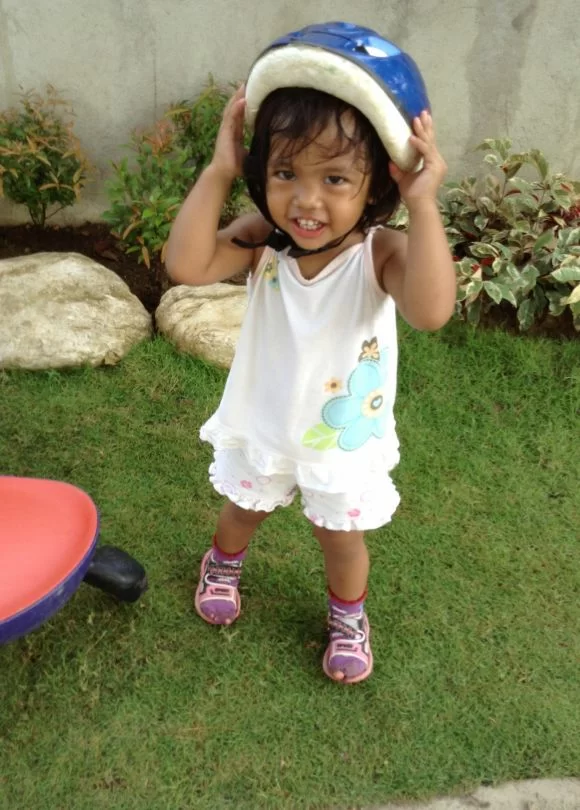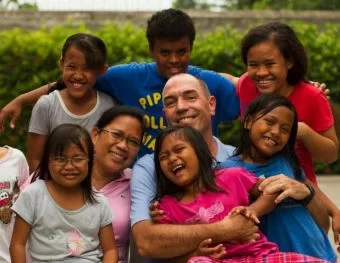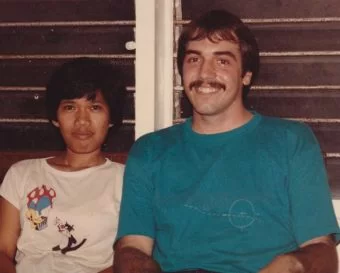
Equine Therapy
Several months ago we met with Gauvin and Delphine Guillaume, a French couple who had just arrived in Cebu. They had formerly worked in China where they started an orphanage called Bethel. They were considering ministry opportunities in Cebu with an eye towards doing something for children with special needs. Eventually, they decided to start a therapy center and their first program is something called Equine Therapy. Their ministry is known as the SPACE Project, or Special People Accessing Creative Education.
Equine Therapy, also known as Hippotherapy, is a treatment that uses the multidimensional movement of the horse. Specially trained physical, occupational and speech therapists use this medical treatment for clients who have movement dysfunction.
Equine Therapy uses activities on the horse that are meaningful to the client. Treatment takes place in a controlled environment where graded sensory input can elicit appropriate adaptive responses from the client. Specific riding skills are not taught (as in therapeutic riding), but rather a foundation is established to improve neurological function and sensory processing. This foundation can then be generalized to a wide range of daily activities.
Friday was our introduction to this innovative program which will be available to some of our children and young adults with special needs. Maria, Michael, Wilmar and Jhaycob met the horse, Kose, for the first time. They helped to feed and groom him, and all but Jhaycob had their first ever ride. It was supposed to just be a "meet and greet" with Kose but they all did so well that the therapist felt it was good for them to ride. Jhaycob was a little tentative but pet the horse and helped give him a bath. All in all it was a great day and we are looking forward to weekly therapy for these, and possibly other kids in the very near future.
An Amazing Phone Call
We chatted for a while and he explained that many years ago he traveled to Cebu, where he saw indescribable poverty. He hadn't forgotten. He shared that while he wasn't a rich man by any means, he wanted to do what he could to leave a legacy and to impact the lives of kids in need.
At CSC we speak often about the hearts of our donors. These hearts are amazing, generous and responsive! As gifts come to CSC to support the care of our kids in Cebu, time and time again we are reminded that it is not the amount of each gift, but rather the heart of the giver. These hearts change lives and bring smiles to adorable faces like this one.

Humba Recipe

Humba was another one of my most favorite Filipino recipes, so when I had the chance to watch the aunties in Eicher prepare this meal I was so thrilled.
Humba is a variation of pork adobo. It's salty-sweet, with just a little bit of acidity, and the meat is completely tender and full of flavor.

This is going to be a little scary for us non-Filipinos, I know, but in order to really make this good you need to buy pork belly (pictured above). It just doesn't compare when you use a different cut of pork. Even if you don't want to actually eat the fat on the pork belly, you still need it to cook with the lean parts so that it gives off that flavor.
First you fry the meat, and then you let it simmer together for a while with all this good stuff....

Until it becomes this golden, delicious, saucy meat that goes perfectly over a pile of hot rice.
So, so good.

Humba
Recipe from the Eicher house
2 lb. bone-in or boneless pork belly*
1-2 cups oil for frying
1 tablespoon azucena (substitute onion)
1-2 bay leaves
1 onion, chopped
1 tablespoons oyster sauce
2 tablespoons soy sauce (more to taste)
¼ cup pineapple tidbits
¼ cup black beans
¼ cup brown sugar
¼ cup vinegar
5 cloves garlic, peeled and smashed
1 ¼ cup water
½ cup green onions
1. Separate the fat from the lean meat by cutting the pork belly into medium sized pieces (about 2 inch by 1 inch).
2.
Heat the oil in a large frying pan over medium low heat and cook the
pieces of pork until golden brown, about 15 minutes. Remove from oil and
drain in a bowl lined with paper towels.
3. Transfer the pork to a
large pot and add all the remaining ingredients except the green onions.
Mix well and bring to a low boil over medium heat. Cover and simmer,
stirring occasionally. After 30 minutes, add the green onions and stir
to mix them into the pot.
4. Cover again and simmer for an additional 30 minutes, or until the pork is very tender.
*It
really is best to make this with pork belly, even though it might
require a trip to a special meat market to find it. The CSC aunties use
bone-in pork belly. Since each piece of pork belly has both a lean part
and a fatty part, it makes the meat extremely tender and full of flavor,
even if you choose not to eat the fatty part. I've made this with
pork sirloin as a subsitution, and I was disappointed with how much
tougher the meat was than with the original pork belly.
Following a Call: The Ohlendorfs
For most people, getting on a plane to Cebu City, Philippines is a glamorous occasion. It’s exciting to see a place on your itinerary that many people have never heard of…a place that’s exotic, tropical and far away.
Mitch and Ruth Ohlendorf are on their way to Cebu as I write, but I doubt glamorous is a word they’d use to describe their departure. Their year of home assignment in Minnesota, USA has come to an end. They packed up their lives (again), left two beloved sons behind at college and returned to a ministry that moves quickly and requires incredible flexibility, diligence and commitment.
Mitch and Ruth leaving Minnesota is another sacrifice in a long list of sacrifices they’ve made for the homeless children of Cebu. They’re not jet setting off to see a far-off world for a couple weeks. They’re returning to their call. They are the hands and feet of so many who care about orphans. Mitch is our Cebu Executive Director and Ruth is Outreach Director.

Here's a glimpse into their call to CSC via a short interview:
How did it first hit you, "I want to work for CSC?"
Mitch: When I was in Cebu the first summer on a short-term mission trip. I was in a group of seven that wasn’t working for the shelter, but we were based there with social time at the shelter. I knew that first summer, at least by the end, that God was calling me to this work. I didn’t have a moment where I fell to my knees or saw a blinding light. It was a progression that happened as a result of the whole experience.
Ruth: I grew up not wanting to work with “snotty kids!” But then I saw these big Americans working with and hugging the most malnourished in our community. Here are these handsome men and beautiful women coming to our country and doing this hard work. This changed my attitude towards the children, and I couldn’t help falling in love with them. You could see the physical difference in the children after they came to the shelter.
Looking back at this point, what are some highlights of your time at CSC?
Mitch: Certainly the development of our facilities. It’s a highlight to work hard with those who made it possible through giving. Of course, it’s thrilling when very large sibling groups or children with special needs are placed for adoption. Those children who had equal opportunity at CSC, but less of a chance at adoption due to various circumstances. Being part of that process. Any day spent doing things with the kids is a highlight for me.
Ruth: Looking back the first heartbreak I had was when a girl named Arlie left for adoption. When I started working full time at CSC she was one of the kids who would go around with me in the village. When she left I could hear her calling to me and that was really sad, and I really missed her. When Arlie returned to Cebu a few years ago that was so exciting. Since she left in 1983 I didn’t know if I’d ever see her again. When we said goodbye back then we never knew if we’d see a child again. Now, kids come back, but that wasn’t always a given. Being able to see them and knowing how they are now is a highlight.
When was a time it really struck you you’d changed a child's life?
Mitch: Any time that I do the matching work for a child. It’s a very burdensome, weighty time knowing I have the responsibility of choosing a family for a child--a family for the rest of their lives. It also hits us when we see children at home after they’re adopted. Seeing the ways they’ve been blessed and even challenges they’ve gone through, seeing them continue in the Christian values that they learned while at CSC, especially as they start their own families. It’s important to see the cycle of abuse, crisis and trauma being broken. Sometimes you see what the kids have come from and wonder how they can break out of that, but many have. A boy named Mark having a hole in his heart and seeing him rescued from that and having the life he has now. A girl like Anna. She would be dead if CSC hadn’t stepped in. She and her sister both had sepsis, she survived but her sister didn’t. Everything we do each day, whether major like placing children for adoption, or spending 5 minutes giving special attention is changing their lives.
Ruth: Roselyn and Julieto, two of our Teen Home residents. I encouraged Roselyn to think about going back to school after it became clear she had just settled on being a beautician. She want back to high school and now she’s in college and almost graduating. Julieto saw this and wanted to do the same thing. Roselyn became an example and now Julieto is graduating from high school. We have outreach kids (children who were returned to their birth family) who have graduated from college. With CSC’s help, they’re able to make this happen.
What does it mean to you to be called?
Mitch: To do what you would not otherwise want or feel equipped to do. I think if you didn’t feel called you wouldn’t be in the ministry as long as we have. There are many encouraging things, but there are also many discouraging and difficult things. Being called is about persevering.
Ruth: Hard to see kids make the same mistakes others have made. Instead of learning, they repeat them. But if you’re not there for them, they don’t have any other family. You are their family. I think that’s what calling is really about at CSC.
What would you tell a young person who is interested in a career in missions?

Mitch: It’s a chance, along with many challenges, to live a life filled with incredible blessing and reward and joy. You’ll have done something that’s changed a lot of lives.
Ruth: You’ve heard the phrase you receive more than you give. CSC is very much that place. You can never give more than you receive. There are times you don’t feel good, and going to the shelter makes your day. The kids are excited to see you. They just make you smile.
Well, Mitch and Ruth Ohlendorf make us smile. We are thankful they followed God to his work for them at CSC.
Ups and downs: CSC and Tom Kelly
The Philippines is a place of tremendous contrasts. Rich and poor people live in close proximity in every city and town. There is great natural beauty here, and the ugliness of smog, squatter areas and polluted rivers. Large SUVs and antique looking bicycles share the roads. Some people buy food at modern style grocery stores; others prefer the large open air markets. 
CSC is also a place of contrasts. We ride a roller coaster of emotions on an almost daily basis. While we deal with problems and difficult behavioral issues with some children, we celebrate accomplishments in our homes and school. We deal with children like CJ who has been sick for most of his 18 months. He suffers from bilateral vesicoureteral reflux, which affects his kidneys, and has microcephaly. He has developmental delays and gastroesophageal reflux. At the same time we marvel at the growth and health of most of our kids. We watch children running on the playground and those that must be pushed in their wheel chairs. We hear reports of our former residents who are having difficulty in their adoptive families, in school and in relationships, even while we celebrate the accomplishments of others who are exceling in academics and sports, and are growing in their faith.
Someone once said that if you are not experiencing ups and downs it means that you are dead. CSC is alive because we take on the challenges of working with older children, sibling groups, those with difficult pasts and kids with medical challenges.
2013 has provided lots of challenges and blessings for CSC as an organization, even in the financial area. A couple of our supporting churches decided to cut back or stop their support of CSC due to changing priorities or financial difficulties. Our income from the Combined Federal Campaign has gone down considerably. But in the midst of those challenges God has provided in other ways. One of our faithful churches decided to give an "over and above" gift at the end of their fiscal year as they had a surplus in funds. They decided not to put the money in the bank but to help fund meaningful ministry. Some children in St. Paul heard of CSC's financial needs and decided to sell lemonade outside their home, with all the profits going to our kids in Cebu. Lots of ups mixed in with the downs.
Tom Kelly, a former manager of the Minnesota Twins, used to say that one of the keys to success in Major League Baseball was not getting too high after a win or too low after a loss. Keeping things on an even keel emotionally is easier to do in a baseball context than with a ministry to homeless children in a country like the Philippines. But there is some truth for us. As we ride the inevitable roller coaster of emotions, we need to keep our eyes on God, remembering his tremendous provision in the past, and knowing that in the midst of dark and difficult times, his light shines bright on CSC.






